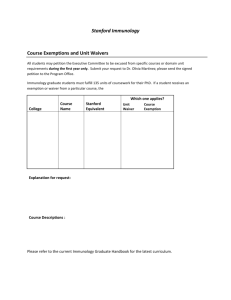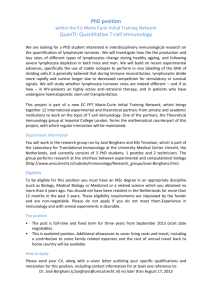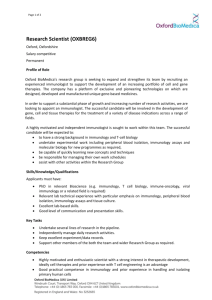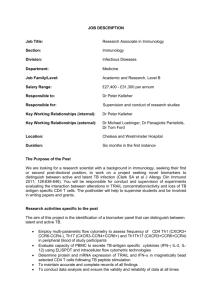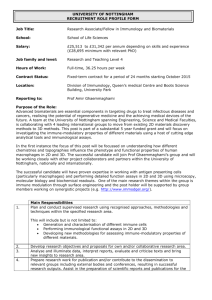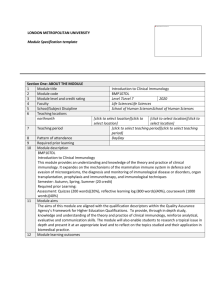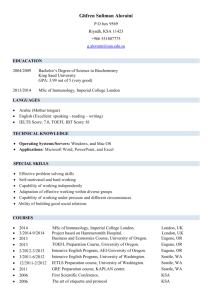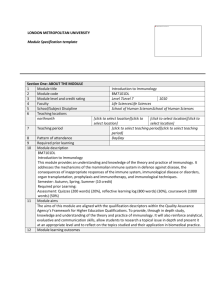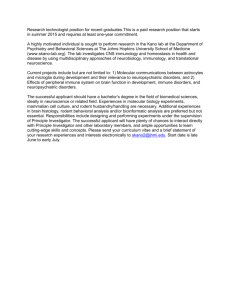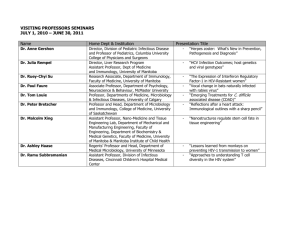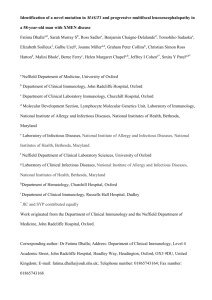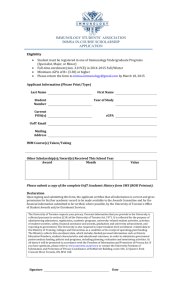essay9 view /
advertisement
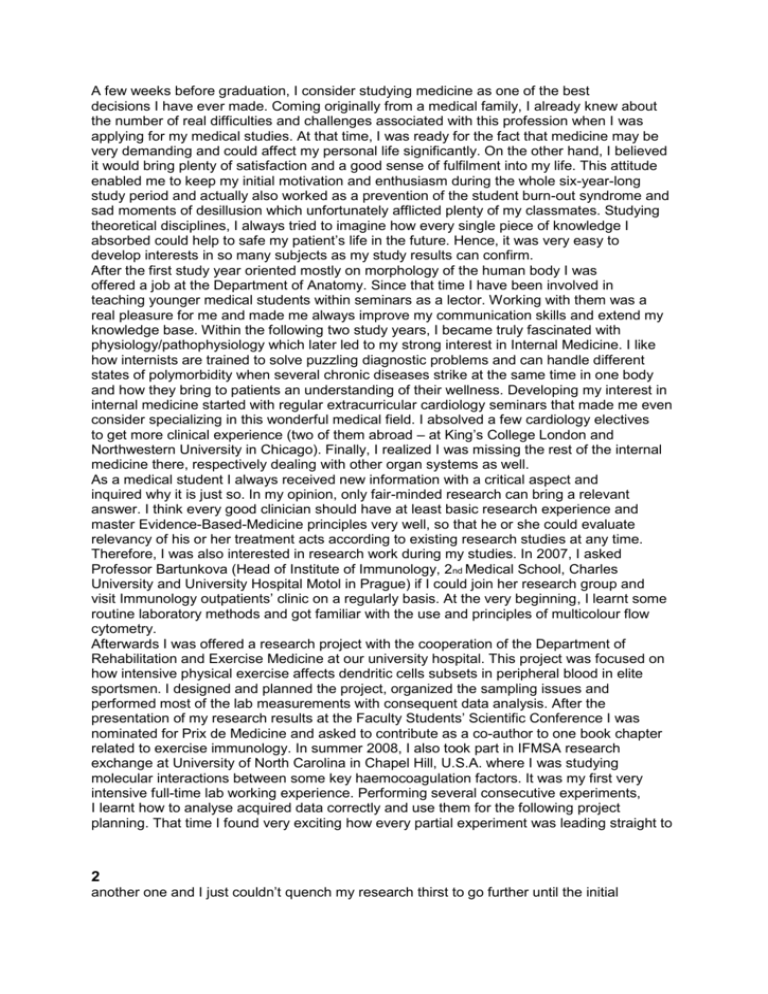
A few weeks before graduation, I consider studying medicine as one of the best decisions I have ever made. Coming originally from a medical family, I already knew about the number of real difficulties and challenges associated with this profession when I was applying for my medical studies. At that time, I was ready for the fact that medicine may be very demanding and could affect my personal life significantly. On the other hand, I believed it would bring plenty of satisfaction and a good sense of fulfilment into my life. This attitude enabled me to keep my initial motivation and enthusiasm during the whole six-year-long study period and actually also worked as a prevention of the student burn-out syndrome and sad moments of desillusion which unfortunately afflicted plenty of my classmates. Studying theoretical disciplines, I always tried to imagine how every single piece of knowledge I absorbed could help to safe my patient’s life in the future. Hence, it was very easy to develop interests in so many subjects as my study results can confirm. After the first study year oriented mostly on morphology of the human body I was offered a job at the Department of Anatomy. Since that time I have been involved in teaching younger medical students within seminars as a lector. Working with them was a real pleasure for me and made me always improve my communication skills and extend my knowledge base. Within the following two study years, I became truly fascinated with physiology/pathophysiology which later led to my strong interest in Internal Medicine. I like how internists are trained to solve puzzling diagnostic problems and can handle different states of polymorbidity when several chronic diseases strike at the same time in one body and how they bring to patients an understanding of their wellness. Developing my interest in internal medicine started with regular extracurricular cardiology seminars that made me even consider specializing in this wonderful medical field. I absolved a few cardiology electives to get more clinical experience (two of them abroad – at King’s College London and Northwestern University in Chicago). Finally, I realized I was missing the rest of the internal medicine there, respectively dealing with other organ systems as well. As a medical student I always received new information with a critical aspect and inquired why it is just so. In my opinion, only fair-minded research can bring a relevant answer. I think every good clinician should have at least basic research experience and master Evidence-Based-Medicine principles very well, so that he or she could evaluate relevancy of his or her treatment acts according to existing research studies at any time. Therefore, I was also interested in research work during my studies. In 2007, I asked Professor Bartunkova (Head of Institute of Immunology, 2nd Medical School, Charles University and University Hospital Motol in Prague) if I could join her research group and visit Immunology outpatients’ clinic on a regularly basis. At the very beginning, I learnt some routine laboratory methods and got familiar with the use and principles of multicolour flow cytometry. Afterwards I was offered a research project with the cooperation of the Department of Rehabilitation and Exercise Medicine at our university hospital. This project was focused on how intensive physical exercise affects dendritic cells subsets in peripheral blood in elite sportsmen. I designed and planned the project, organized the sampling issues and performed most of the lab measurements with consequent data analysis. After the presentation of my research results at the Faculty Students’ Scientific Conference I was nominated for Prix de Medicine and asked to contribute as a co-author to one book chapter related to exercise immunology. In summer 2008, I also took part in IFMSA research exchange at University of North Carolina in Chapel Hill, U.S.A. where I was studying molecular interactions between some key haemocoagulation factors. It was my first very intensive full-time lab working experience. Performing several consecutive experiments, I learnt how to analyse acquired data correctly and use them for the following project planning. That time I found very exciting how every partial experiment was leading straight to Ondrej SUCHANEK STATEMENT OF PURPOSE (MSc. Integrated Immunology, Oxford) 2 another one and I just couldn’t quench my research thirst to go further until the initial question was fully answered. Immunology entices me so much because of its integrated approach to the whole human body with wide cooperation of other clinical disciplines. It helps to understand pathogenesis of a very broad spectrum of human diseases across almost all medical specialties. It offers a natural opportunity to combine clinical medicine which I like very much and research work that is much more creative and stimulating, especially in such a rapidly evolving research area. According to my above-mentioned interests, it is easy to understand why I have become more and more convinced that this is the right field for me. Since I would like to deepen my understanding of immunology and its latest developments I am very attracted to the programme MSc. Integrated Immunology at the University of Oxford, which is arguably one of the world leaders in this area. This course provides comprehensive and in-depth training in immunology for science and medical postgraduates and integrates other relevant areas, including professional development and transferable skills, for a well rounded approach. I think it is a wonderful opportunity to gain as much knowledge as possible in both aspects of immunology in one year - clinical approach necessary for a medical doctor and the laboratory experience and scientific principles essential for a researcher. Since I would like to get on the academic track of higher medical training (combining clinical medicine, research / PhD studies and teaching), this programme fits perfectly into my further plans. Studying in Oxford attracts me so much not only because of my interest in immunology. Above all, it offers unique intensive education with distinctive tutorials and multidisciplinary college communities where students are intellectually challenged all the time and have the opportunity to meet people from all walks of life and many different countries. Oxford students are valued highly especially for their analytical skills, sound judgment, original thinking style and problem solving. In my opinion, my regular medical curriculum developed these important skills very insufficiently and that’s why I tried to get them hardly through my numerous extracurricular activities as mentioned above (working in Academic Senate, teaching younger students, doing research). Oxford represents a learning opportunity that simply does not exist in my home country and I believe it would help me to expand both my personal and professional skills, knowledge base and experience much faster than ever before. I believe that my participation in the course of Integrated Immunology would be of a great value not only for me, but also for the Charles University and University Hospital Motol, where I’d like to return after a few years. I am sure it would also be an ideal start point and motivation for my future PhD studies and that it would help me to choose their topic as both course directors suppose. Prague, 21th June, 2010. Ondrej Suchanek
